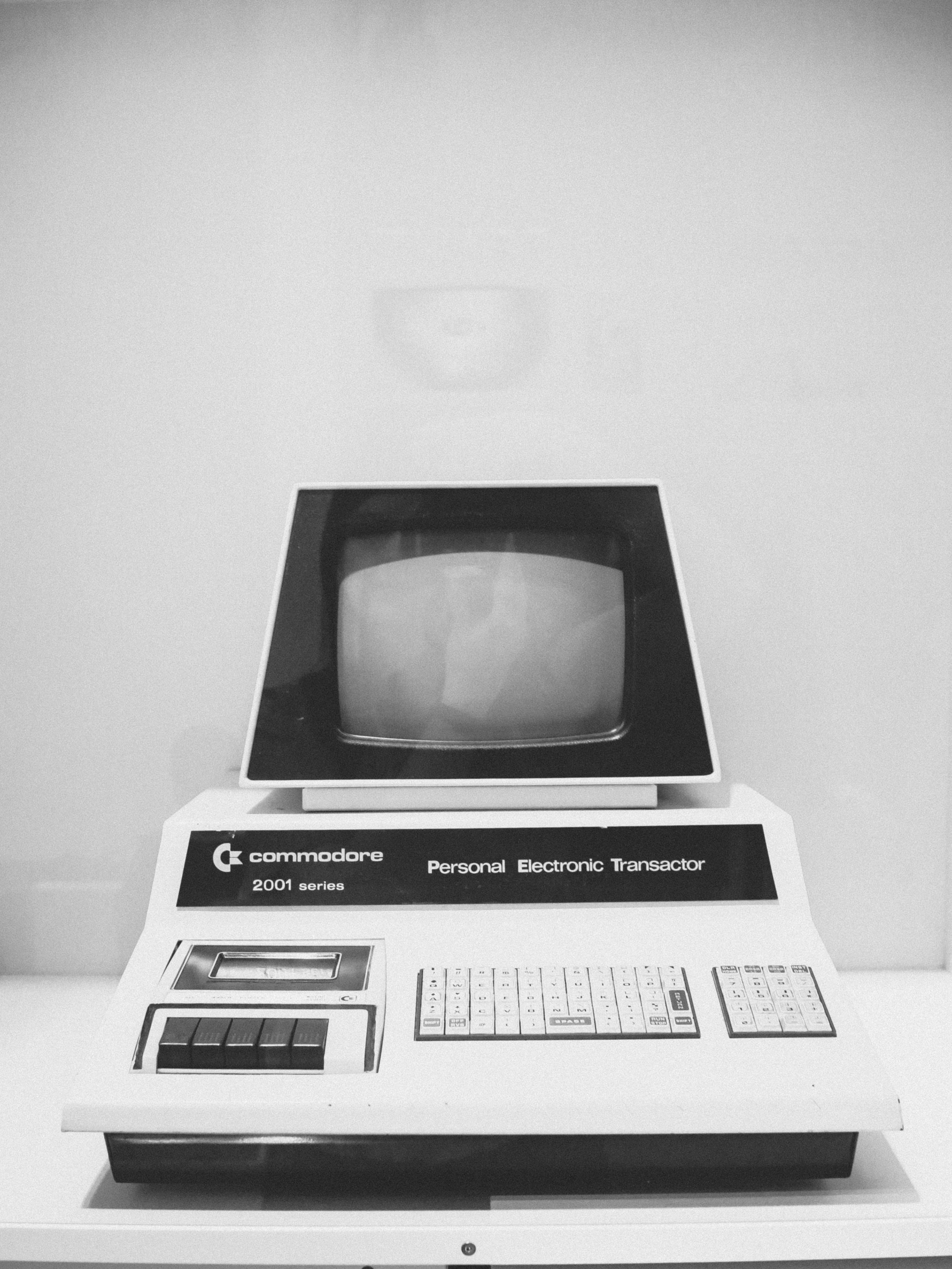Is your ESL school caught in a technological time warp? The likely answer is yes.
As Ian Jukes, Ted McCain, and Lee Crockett write in their book, Understanding the Digital Generation:
"Schools have not recognized the changes that have occurred in the world around them and have continued to teach as if it were 1980."
Many schools struggle with technology integration - mostly due to budget cuts. However, it’s time to realize that technology integration no longer means making painful dips into your school's finances. In fact, many technological changes your ESL school should implement are budget-friendly and will save you money in the long-run.
The first step is recognizing the problem. Do any of these signs sound familiar to your school? If so, it’s time to take action.

1. Your policies enforce a device-free zone within the school
Once widely dismissed as distractions, personal devices such as cell phones, mp3 players, and tablets are now being used as learning tools in forward-thinking schools. Why should your school be any different?
Teachers and a number of studies agree that technology in schools can make education more effective:
“Technology-based instruction can reduce the time students take to reach a learning objective by 30 to 80 percent,” according to the U.S. Department of Education and recent research by the National Training and Simulation Association. Teaching efficiency improves when tech devices are integrated into the learning environment. Why not utilize personal devices for an educational purpose, instead of banning them? Eighty-one percent of teachers believe that tablets, for example, enhance student learning and have seen vast benefits from online collaboration.
By implementing a technology-friendly atmosphere, you will not only spend less time dealing with confiscated cell phones, but improve educational access and efficacy.
2. Your school policies keep web content out rather than bringing content in
Would you believe that internet censorship may harm schools? It may be so! For instance, according to "Internet Filters, a public policy report,” a 2001 study from the Brennan Center of Justice, a school filter blocked the website of former House Majority Leader Richard Armey due to the software detecting the word "dick." Another school-imposed program blocked the Declaration of Independence, Shakespeare, "Moby-Dick," and "Marijuana: Facts for Teens," a brochure published by the National Institute on Drug Abuse.
The Internet filters may be even more impractical than just their lack of nuanced filtering. As the recent failed rollout of iPads in Los Angeles has shown, students excel at cracking through filters and accessing any website through proxy servers.
So how should schools control Internet content, when filters are proving to be counterintuitive? Many experts insist that free access to the Internet is the answer. According to a 2014 report the American Association of School Librarians, “Students must develop skills to evaluate information from all types of sources in multiple formats, particularly the Internet. Relying solely on filters does not teach young citizens how to be savvy searchers or how to evaluate the accuracy of information.” Promoting free access to information is essential to the learning process of students, especially when they are discovering a new language.
But how do you teach students to handle this freedom in a responsible way?
-
Focus on the educational purpose
Professional development, technical and instructional support, Internet-based lesson plans and educational websites support the educational use of the system. With such training from the districts, teachers may focus on instructing their students on the use of the Internet in an engaging and educational manner. When the computers are being used for activities that students genuinely enjoy and understand, the opportunity for misuse is significantly limited.
-
Clear policy
The school's policy should directly address the topic of inappropriate material. Focus on the safety and security of students when using electronic communications, illegal and inappropriate activities, and the protection of sensitive personal information. The policy should address responsibilities of both staff and students, and inform of the consequences of carelessness.
-
Education about safe use
Educational efforts regarding the safe and responsible use of the Internet should reach out to teachers, administrators and the students. Consideration should be given to the age and maturity level of the students. Some issues to address may include being the target of predation, hate groups, invasion of privacy, scams, cyber bullying and stalking.
-
Supervision
Supervision should also lean on the students’ sense of responsibility. When students know that instances of misuse will be detected and will result in disciplinary action, they are unlikely to take the risk of engaging in misuse. Effective monitoring, and the students’ awareness of being monitored, is generally a sufficient deterrent.
-
Discipline
Create a “teachable moment” out of disciplinary instances. Address the issue in a way that teaches the individual student, as well as other students in the school. Instead of focusing on the disobedience, consider instructing on the reasons behind a specific rule.
3. Your textbook budget exceeds your technology budget
Educational content is now freely available on the internet (consider digital libraries by the Smithsonian, Library of Congress and NASA). The accessibility of material has created a new dynamic for ESL teaching and learning. Teachers can customize classes to be dynamic and more up-to-date to meet the personalized learning needs of students.
Startups are helping the adoption of digital technologies by schools and teachers:
ESL textbooks have not yet completed the digital transition – many textbooks are ported but not optimized for the new format. However, between cultural and other factors, the educational system is demanding content for portable devices.
Many startups are creating opportunities to back this demand and government organizations are encouraging the transition. Digital publishing library Inkling is the host for thousands of textbooks, all available in a number of online and downloadable formats. Habitat, an online publishing platform, is optimized for interactive content. Habitat treats book content as software, optimizing text for use on multiple devices, including personal computers, tablets, and cellphones.
It’s time to make the switch - portable devices for textbooks may be the money-saving investment you have been looking for. There is an endless collection of ESL learning tools available online - use them to your advantage!
4. Social media is banned in your school, or considered solely as a distraction
There is no escape from social media in the twenty-first century school. So why not use the technology as a learning opportunity to show students how to be active and responsible web users? Using social media to engage with the school community will help guide students to responsible behaviors.
Did you know that social media may also be beneficial for educational purposes?
In fact, research from Best Masters in Education has shown that the use of social media in school has benefits for students, parents, and educators:

Even outside the classroom, social media can improve your school’s performance. You may use social media to:
- Recruit new applicants by engaging with potential students on social media about the admissions process and answer questions.
- Encourage alumni interaction and keep former students active in your school’s community. Designate social media profiles for the alumni network.
- Keep your audience updated on what’s going on at school by sharing news and promoting events.
- Your school’s reputation may be developed and managed through social media. Look out for criticisms or negative messages and react in an appropriate and timely manner.
- Start conversations and foster connections between students to support your school’s community.
5. Your website hasn't been changed in years
Your website is the face of your school - the first impression for prospective students and their parents. Keep it updated, interesting and informational. Optimize the impression of your website by making these additions:
-
News and Announcements
Share the latest news with your community directly on your homepage.
-
Calendars and Food Menu
Keep your community informed about all scheduled events, whether hours or weeks away. What is for breakfast today? You can use your website to let your student know!
-
Web Forms
Create online forms with as many questions or fields as necessary to collect information for surveys, job applications, questionnaires and more.
-
Photo Albums
Capture school events and upload the images to your website. Don’t forget to add engaging captions!
-
Email List
Send emails to your community, parents, students, and teachers through a number of email lists available on your website. Create an email list for teacher, class, and department pages.
-
Spotlight
Highlight people in your school and showcase their achievements on your website. Consider creating categories like Student of Month, Teacher of the Year, Athlete of the Week, Notable Alumni, etc.
-
Pages
Create department sections showing a list of staff members. Allow departments to create as many pages as necessary to showcase the great work they do. These pages may include photo albums, class lists, calendars, and any other information they want to communicate to students and parents.
-
Online School Store
Sell your school merchandise directly through your school’s official website. Visitors are able to shop using the online shopping cart.
-
Parent and Student Accounts
Parents and students can create their own user accounts for a more personalized experience with the school website. They can create class lists and upload homework to password-protected sections. Parents particularly like that our system sends email notifications about upcoming homework assignments to students.
-
Online Polls and Donations
Consider creating a poll to see what your community thinks about a particular topic. You may also use your website to collect for specific causes, set up fundraising campaigns or to establish recurring donations.
6. There's a dusty card catalog file in your media center
We invest billions of dollars and years of effort into improvements in education around the world, but we often fall short at the final step - optimizing the space itself. Integrating technology for record keeping and ease of access to educational material is one of the easiest ways to improve the learning environment without having to reconstruct the physical building.
Digitizing your records can make a vast improvement in administrative decisions. Effective management decisions are required for schools to operate efficiently and productively.
- Consider digitizing student records, which mat improve accessibility, storage, management, organization and retrieving of the records convenient, quick and less hectic.
- By analyzing the data, school administrations are now looking into what’s working and what area of school management needs to be improved. With data becoming digitized, the process of analysis becomes easier.
- Digitization helps ensure that important information and records are kept secured and safe, which is otherwise extremely difficult.
7. You are still not using Your Agora for auto-grading and lesson planning
Your Agora is the latest online platform to increase the performance of both your teachers and students! According to a teachers' poll, more than half the teachers spend more than five hours a week grading alone. That’s not counting lesson planning and other tasks necessary to meet academic and developmental goals.
Use Your Agora to:
-
Save on Commission for a Teaching Platform
A quality platform tailored to every need of teachers and students, Your Agora is completely free. We take pride in the scope of the tools, user-friendliness, and customizability of the service we provide.
-
Increase Your Range of Instruction Expertise
Your Agora’s course list contains topics from Business English to situational conversations, to vocabulary. We cover detailed topics for all ages, from beginners to advanced.
-
Automatize Grading to Focus on What Is Important
Save time for teachers and students. Homework, once assigned and completed, is graded automatically. Teachers receive prompt notifications upon an attempt or completion of each assignment. Students are empowered by instantaneous feedback on their performance. Teachers save time on grading, spending it on enhancing more important aspects of the course.
-
Use Dynamic Tools to Suit All Learning Styles
The dynamic tools provided by Your Agora incorporate various methods of teaching, from video lessons to bright visuals. The user-friendly panel provides various resource and exercise types, all of which can be assigned and altered on a single webpage.
-
Provide a Flexible Learning Experience
Many students hesitate to venture into the language-learning experience due to the time commitment. Your Agora works around the busy lifestyle of the modern student. Each aspect of the course can be tailored to a specific timeline, from the length of lessons to assignment deadlines. Schedules can be altered to suit all availabilities.

